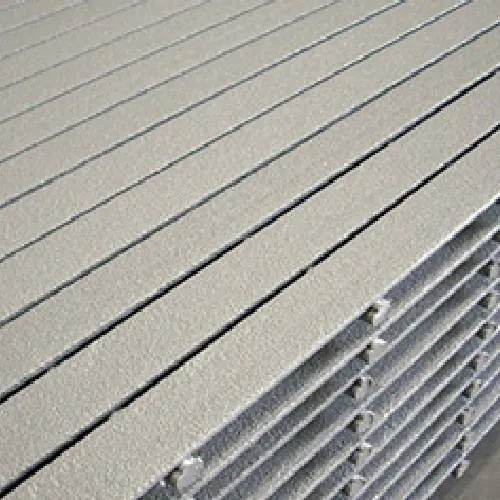loading...
- No. 9, Xingyuan South Street, Dongwaihuan Road, Zaoqiang County, Hengshui, Hebei, China
- admin@zjcomposites.com
- +86 15097380338
- Welcome to visit our website!
Effective Solutions for Grating Anti-Slip Applications and Safety Enhancement
Understanding Grating Anti-Slip Solutions for Safety and Efficiency
In today’s industrial landscape, ensuring safety and efficiency in workplaces is paramount. One effective solution that has gained immense popularity is the use of grating anti-slip technology. This innovation resonates particularly in environments where moisture, oil, or other slip hazards are prevalent, making it a crucial consideration for facility managers and safety officers alike.
What is Grating Anti-Slip?
Grating anti-slip refers to the application of specialized materials or textures on gratings and related surfaces to enhance traction and reduce the risk of slips and falls. Gratings are often used in walkways, platforms, and staircases, particularly in industrial settings, where they serve a dual purpose of providing support for loads while allowing for drainage or ventilation. Incorporating anti-slip features into these structures helps prevent accidents that can lead to injuries and significant costs for companies.
The Importance of Grating Anti-Slip Solutions
Slips and falls remain among the leading causes of workplace injuries. According to the United States Bureau of Labor Statistics, these incidents account for thousands of workplace injuries each year, resulting in lost workdays and increased insurance costs. Therefore, implementing grating anti-slip solutions is not just an option; it is a critical strategy for enhancing workplace safety.
In industries like manufacturing, construction, and food processing, where surfaces can become slick due to spills, grime, or weather conditions, anti-slip gratings can dramatically reduce the incidence of accidents. This not only protects employees but also lowers liability risks for employers.
Types of Grating Anti-Slip Solutions
1. Coated Gratings These involve slabs or panels that have an anti-slip coating applied. This coating can be made from materials such as polyurethane or epoxy, which provide excellent stickiness and durability in high-traffic areas.
grating anti slip

2. Textured Surfaces Some grates are manufactured with a rough texture, which inherently offers a better grip. This design can include raised patterns or patterns that give the surface its slip-resistant quality.
3. Grating Inserts Another common solution involves the installation of anti-slip strips or inserts into existing gratings. These can be made from abrasive materials embedded in a polymer strip, providing an additional layer of protection against slipping.
4. Fiberglass Reinforced Plastic (FRP) Gratings These gratings are inherently slip-resistant due to their material properties and design. They are particularly suitable for harsh environments due to their corrosion resistance and durability.
Choosing the Right Grating Anti-Slip Solution
When selecting the appropriate grating anti-slip solution, several factors must be considered
- Environment Is the grating exposed to chemicals, water, or extreme temperatures? The chosen material should withstand specific environmental challenges. - Foot Traffic High-traffic areas may require denser and more durable solutions. - Regulatory Compliance Ensure that the selected solution meets national and local safety regulations, as different industries may have specific requirements regarding slip resistance.
- Maintenance Needs Some anti-slip options may demand more upkeep than others, depending on their materials and coatings.
Conclusion
In conclusion, the integration of grating anti-slip solutions into industrial settings is an essential investment in safety and efficiency. More than just a precaution, these anti-slip features are foundational for creating a workplace where employees can perform their jobs without the looming risk of slips and falls. As industries continue to evolve, the demand for innovative safety solutions like grating anti-slip technology will only grow, driving advancements that improve workplace safety standards globally. By choosing the right anti-slip solution, businesses not only protect their workforce but also enhance productivity and morale, resulting in a more robust and responsible operational ethos.
-
the-expansive-industrial-reign-of-frp-pressure-vesselsNewsAug.22,2025
-
manufacturing-premium-frp-square-pipes-for-global-wholesale-excellenceNewsAug.22,2025
-
strategic-applications-for-frp-grating-solutionsNewsAug.22,2025
-
material-science-forging-grp-water-tank-longevityNewsAug.22,2025
-
the-engineered-excellence-material-science-behind-frp-railing-systemsNewsAug.22,2025
-
how-digital-pultrusion-revolutionizes-frp-profile-wholesalingNewsAug.22,2025
-
The Rise of FRP Profiles: Strong, Lightweight, and Built to LastNewsJul.14,2025
